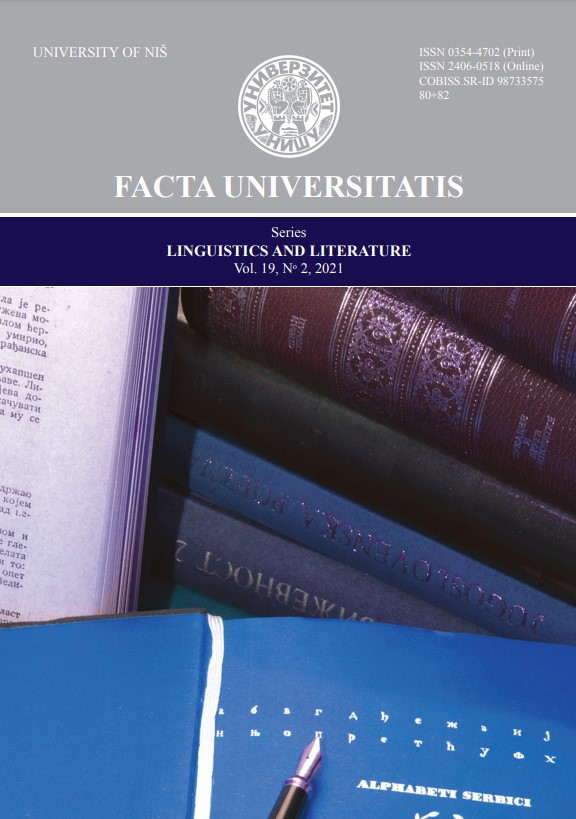L’ART «DÉCADENT» DE FLAUBERT: L’IMPASSIBILITÉ IMPOSSIBLE
FLAUBERT’S “DECADENT” ART: IMPOSSIBLE IMPARTIALITY
Author(s): Radana LukajićSubject(s): Studies of Literature, French Literature, History of Art
Published by: Универзитет у Нишу
Keywords: Flaubert; Realism; objectification; identification; art; decadence
Summary/Abstract: This article problematizes some of Flaubert’s ideological-aesthetic postulates, in particular impartiality that implies ultimate objectification and distance in relation to the characters conceived. As the starting point and, at the same time, the common thread of our discussion, we take the ambivalent relationship which Flaubert established with the character of Emma Bovary. On the one hand, the statement that reads, “Emma Bovary, that is me” (the truth of problematic authenticity, given that it was never written down) and, on the other hand, the categorical rejection of any identification with the character whatsoever and of the ‘veracity’ of what was told converge at a single point: the author is inevitably present in every segment of the narrated, which Flaubert himself unambiguously claimed in one paratext, but the anecdotal is transformed while the identification with the heroine of this famous novel is placed at the level of the subliminal. To this end, our hypothesis is that Flaubert, through the character of Emma Bovary, confronted his own femininity, in the sense Jung used the term. Furthermore, through the “bovarysme” of his heroine, by means of pseudo-objective motivation (Bakhtin) and typologisation that assume a specific function utilizing famous Flaubertian irony, the author questioned his own “bovarysme” (which is, simultaneously, both an artistic and intellectual category) as well as his bourgeois lifestyle as a contradiction that he tried to sublime by the artistic creation cult. We question the given issues by relying upon Flaubert’s prolific correspondence, in which this author, on multiple occasions, formulated his poetic-aesthetic principles, and upon the study of Sexual Personae by Camille Paglia and the conception of Genius offered by Giorgio Agamben in his book Profanations. In the concluding section of the article, we clearly highlight the illusionary nature of the principle of “impartiality” as well as the necessity of subjective presence of the authors in the characters they made, whether they, through these characters, questioned their own contradictions or identified themselves with them in an unambiguous manner. Although we resort to using the term “subjective realism” in this respect, Flaubert’s depiction of “reality” is a complex, multi-layered method which cannot be distinctly labelled within the terms of any one single aesthetic school, movement, or tendency, which is the case with any genius author.
Journal: FACTA UNIVERSITATIS - Linguistics and Literature
- Issue Year: 19/2021
- Issue No: 2
- Page Range: 211-220
- Page Count: 10
- Language: French

